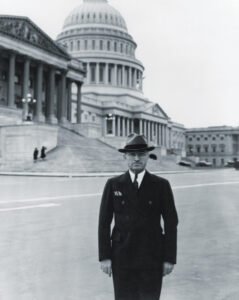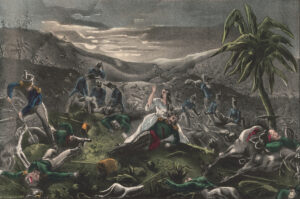What U.S. presidents since 1975 have had in common
 It should come as little surprise that what happened to the United States in the Vietnam War has had an impact on foreign policy decisions made by every American president since the conflict’s inglorious ending in 1975. In their new book, Haunting Legacy: Vietnam and the American Presidency From Ford to Obama, long-time CBS and NBC-TV newsman Marvin Kalb and his daughter, veteran journalist Deborah Kalb, explore the nexus of the legacy of the Vietnam War and American presidential decision making in the last 35 years. Their conclusion: Since the Communists took control in Vietnam in 1975, that war “always seemed to have a seat in the Oval Office, playing a surprisingly critical role in many presidential decisions.”
It should come as little surprise that what happened to the United States in the Vietnam War has had an impact on foreign policy decisions made by every American president since the conflict’s inglorious ending in 1975. In their new book, Haunting Legacy: Vietnam and the American Presidency From Ford to Obama, long-time CBS and NBC-TV newsman Marvin Kalb and his daughter, veteran journalist Deborah Kalb, explore the nexus of the legacy of the Vietnam War and American presidential decision making in the last 35 years. Their conclusion: Since the Communists took control in Vietnam in 1975, that war “always seemed to have a seat in the Oval Office, playing a surprisingly critical role in many presidential decisions.”
The “loss of Vietnam,” they say, “has profoundly changed how presidents decide questions of war and peace and how they interact with Congress, the public, and the world….Vietnam has infiltrated the presidential DNA, even though presidents have struggled with this DNA in different ways.”
The Kalbs go on to set out, in detail, the different ways that “Vietnam” has influenced Presidents Gerald Ford, Jimmy Carter, Ronald Reagan, George H.W. Bush, Bill Clinton, George W. Bush and Barack Obama, as well as their top foreign policy advisers. Those ways have “swung wildly,” the Kalbs say, “from the strutting use of American military power (by Ford, George H.W. Bush and George W. Bush), to its deliberate underuse (by Carter, Clinton and, surprisingly, Reagan).” President Obama, they say, “has so far straddled both models” in Afghanistan.
Using an effective mixture of research and personal interviews, and writing in readable, journalistic prose, the authors also examine the impact of the Vietnam War’s legacy on presidential election campaigns, beginning with Carter’s unseating of Ford in 1976. Carter and Reagan, the authors say, made it a point in the 1976 and 1980 (Carter vs. Reagan) campaigns to “distance themselves from the Vietnam War” because the nation was in no mood to deal with the still sore subject. The Kalbs bring that assertion home with the fact that after Reagan called the war “a noble cause” in his August 18, 1980, speech to the Veterans of Foreign Wars National Convention, his poll numbers “tanked.”
The authors detail the political stink that erupted in 1988 over George H.W. Bush’s naming of Indiana Sen. Dan Quayle as his vice-presidential running mate. Within days, Quayle’s easy entry into the National Guard during the height of the Vietnam War became the top campaign issue. The Kalbs delve even more deeply into Bill Clinton’s draft-evading in the late ’60s and the failure of the Bush campaign to capitalize on it effectively during the 1992 elections.
The same was true with World War II hero Sen. Bob Dole’s 1996 campaign against Clinton, then the incumbent. The reason for this lack of traction was revealed in poll results indicating that Clinton’s avoidance of the draft meant little to the majority of voters in 1996. The authors also cover the impact of George W. Bush’s National Guard service and Al Gore’s Vietnam War service on the 2000 campaign, and recount the “Swift Boating” of Massachusetts Sen. John Kerry by the Republicans in 2004.
As for Arizona Sen. John McCain in the 2008 presidential campaign, the Kalbs say the situation was similar to what happened in 1996—when Dole’s making an issue of his opponent’s lack of military service while trumpeting his own did not, by and large, resonate with voters. Republican vice presidential candidate Sarah Palin condemned Obama (who was too young for the Vietnam War) for his acquaintance with one-time radical antiwar activist Bill Ayres, but that also did not appear to do the McCain campaign much good. The Ayres charges, the authors say, “did not have the impact the Swift Boaters had in 2004,” and in that election Vietnam “was off the table.”
There is little doubt that the legacy of Vietnam has played a significant role in the Obama presidency, as the commander-in-chief attempts to devise a strategy for getting American troops out of Iraq and bringing the war in Afghanistan to an end. Likewise, as the sparks of the Arab spring ignite uprisings in places like Libya and Syria, and strident calls for aggressive use of American power compete with calls for a hands-off approach, the Vietnam War experience will continue to loom large in this, or any, president’s calculations.
Brookings Institution, 2011




